Decaf Typica wins 2024 US Brewers Cup: Specialty coffee is changing its opinion
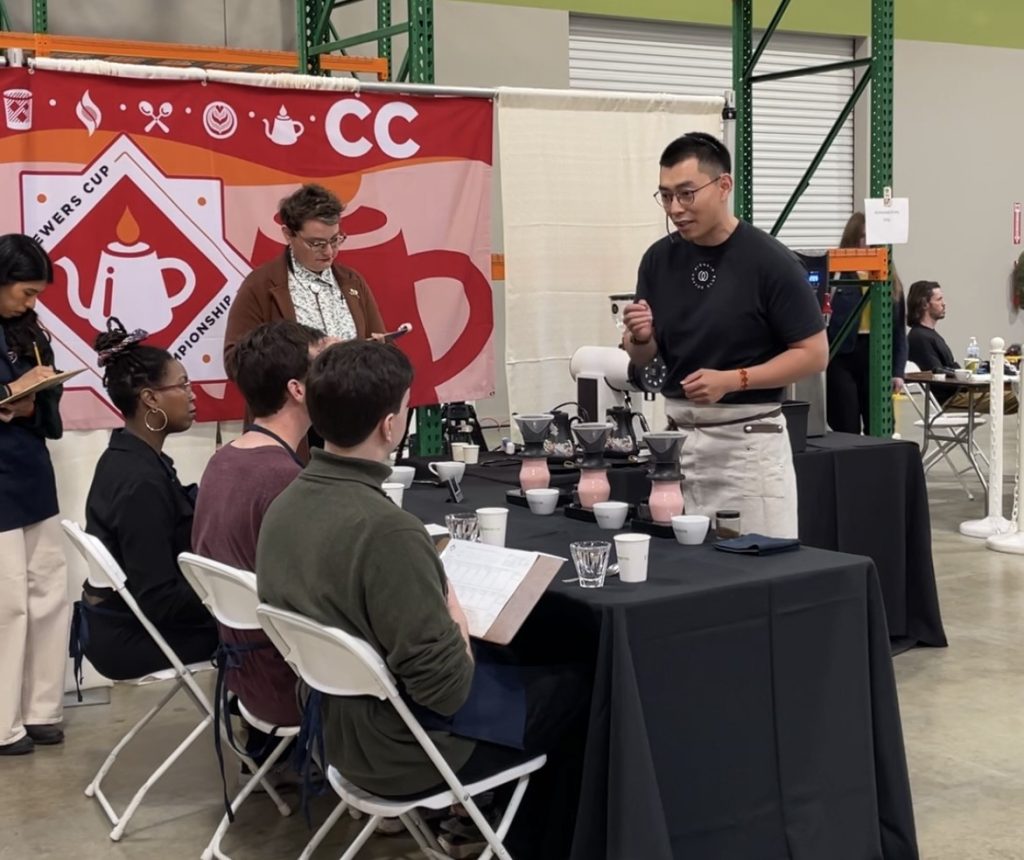
Generally speaking, people seem to have particularly strong opinions about decaf coffee. But whether you love it or hate it, decaf coffee clearly serves an important purpose in the industry and isn’t going away anytime soon.
It may come as a surprise to most, however, that at the 2024 US Brewers Cup finals held in Rancho Cucamonga, California on 17 March, Weihong Zhang placed first using a decaffeinated Typica from Finca Los Nogales in Colombia. With flavour notes of eucalyptus, strawberry, and raspberry, Weihong described the coffee as “the best decaf coffee we have ever tasted”.
Considering we usually see more high-end and ultra-premium lots win coffee competitions, this is big news. And it’s also a sign that specialty coffee might be changing its mind about decaf.
To find out more, I spoke to Weihong Zhang, founder of BlendIn Coffee Club, and Bruno Nobre, CEO of Uncommon Coffee Roasters.
You may also like our article on whether low-caf varieties could replace decaf coffee.
Weihong Zhang wins 2024 US BrC with decaf coffee
Every year, the coffee industry hosts a variety of prestigious competitions, and there’s always something new to see – especially at the national and World Coffee Championships.
The SCA US Chapter recently hosted the national Barista, Brewers Cup, and Cup Tasters Championships at Klatch Coffee Lab and Roastery in California. Among the many anaerobic fermented Geshas showcased on stage, there was another standout coffee – a decaf Typica variety which won the US Brewers Cup.
Weihong Zhang – founder of BlendIn Coffee Club in Houston, Texas – explains more about the coffee.
“It’s a mucilage ethyl acetate (EA) decaf Typica from Finca Los Nogales in Colombia,” he says. “After harvesting, the cherries are depulped to separate the beans (or seeds) from the mucilage.”
For context, the EA decaf process involves applying a mixture of water and ethyl acetate solvent (an organic compound formed between acetic acid and ethanol) either directly or indirectly to green beans:
The direct method is when green coffee is continuously steamed and then rinsed with the solvent for up to ten hours, before being drained and steamed to remove any residue.
The indirect method involves soaking green coffee in hot water for several hours, before removing it and adding the solvent.
Essentially, the EA solvent closely mimics the chemical make-up of coffee with caffeine, so it “strips” the green beans of their caffeine content.
“The coffee beans then undergo washed processing and the mucilage is fermented with EA,” Weihong tells me. “After processing, the beans are soaked in the mucilage mosto with EA for up to 48 hours to remove the caffeine.”
In the wine industry, “mosto” refers to the juice of grapes extracted in the first steps of winemaking. So in the context of coffee, the term describes the juice of fermented coffee cherries.
Have other competitors ever used decaf?
More often than not, the ultra-premium varieties (or even species) are the ones taking the top spots at competitions. On top of this, these coffees have usually undergone some kind of advanced processing method or controlled fermentation to create more standout and unique flavours.
So many would agree that a decaf Typica winning the US Brewers Cup is quite an achievement, and certainly deserves recognition. But it’s not the first time we’ve seen a decaf coffee used at a national Coffee Championship.
In 2020, seasoned competitor Cole Torode used a Swiss Water decaf process Gesha during his Canadian Barista Championship routine. Sourced from La Palma y El Tucan in Colombia, Cole described the decaf process as making the coffee taste “a little bit sweeter, and has maybe a little bit more acidity… and a little less bitterness”.
Cole placed third in the competition – and helped place more of a spotlight on the quality potential of decaf coffee.
Opinions about decaf are changing
For many years now, there has been a sentiment – particularly in specialty coffee – that decaf coffee is “less than”. But with a decaf Typica winning the US Brewers Cup, it’s fair to assume that opinions might be shifting.
“I selected this coffee because it’s really delicious. The first time I brewed this coffee, I couldn’t tell it was decaf,” Weihong says. “In a way, I think it shows just how much decaffeination methods have advanced in recent years.”
Whether you like decaf or not, this statement certainly rings true. Gone are the days when green beans were soaked in benzene – a carcinogenic substance which was used in the first-ever decaffeination process in 1903. Since then, many other decaf methods have become available, such as:
Swiss Water process (arguably the most popular)
Alternative water processes, such as Mountain Water Process
Carbon dioxide method
Sugarcane method (which uses ethyl acetate)
Although it still comes down to personal opinion, some roasters and coffee companies have indicated that decaf coffees are now scoring higher on the Specialty Coffee Association scale, which is a sign that quality is on the rise.
Bruno Nobre – CEO of Uncommon Coffee Roasters and founder of Minas Espresso – is one of them.
“We have been cupping a natural decaf since 2017 and the quality has been showing good progress,” he says. “According to the SCA cupping sheet, the score has increased from 76 to 85 points. It also had a remarkable sensory profile, with notes of chocolate milk and orange with a medium body.”
And ultimately, decaf’s popularity isn’t showing any signs of slowing down. By 2030, the global decaf market will be worth US $28.86 billion – and with quality increasing, its market share could only get bigger.
Decaf alternatives are also standing out
Decaf may not be to everyone’s taste, but many people still want to regulate their caffeine intake. So over the past few years, the number of alternative options has started to grow.
In addition to the booming half-caff market, Laurina and Aramosa – two coffee varieties which are naturally low in caffeine – are the most obvious examples. Laurina has even been used at competitions, and won the 2018 World Brewers Cup, which undoubtedly placed more of a spotlight on specialty low-caf coffees.
Bruno, meanwhile, tells me about a relatively new alternative – naturally-decaffeinated coffee, which he also spoke about at PRF Guatemala on 7 & 8 March 2024.
“Instituto Agronômico de Campinas has been working to develop new arabica cultivars that are 100% naturally decaf, and most importantly, non-GMO,” he explains. “There are three main cultivars today that Brazilian researchers say have great commercial potential: AC1, AC2, and AC3.
“We will continue to conduct research on these three main cultivars over the next five years,” he adds. “Researchers at the IAC need to measure and check the consistency of their caffeine levels, which are typically between 0.01% and 0.1%.”
Considering that decaf coffee needs to have no less than 97% of its caffeine content removed to be certified (99.9% according to European standards, however), naturally-decaffeinated coffees present a unique opportunity for roasters looking to offer alternatives to traditional decaf options.
For now, decaf remains on top
While specialty coffee’s interest in low-caf varieties and naturally-decaffeinated coffees is growing, there are significant barriers to growing the market for these coffees. Essentially, their low caffeine levels means that they are hard to produce. This is because caffeine acts as a natural repellent against insects and pests, so coffee plants which contain less caffeine can die more quickly – and farmers aren’t exactly incentivised to grow them.
“Our main goal is to make AC1, AC2, and AC3 commercially available by 2030,” Bruno says. “My dream is to have these cultivars growing in different terroirs in Brazil, so we will be able to taste different flavour profiles. Imagine if we could see these coffees at the World Barista Championships or at PRF events.
“In order to make this true, my company CULTIVO will need to work with other companies that are interested in financing our next seven years of scientific research,” he adds.
Decaf serves an important purpose in our industry, and both Bruno and Weihong agree that quality is only getting better – meaning it certainly deserves a place in specialty coffee.
“I wanted to showcase that decaf coffee can be as flavourful and complex as regular coffee,” Weihong concludes. “And I think it’s time for specialty coffee to become more inclusive, and ensure that those who can’t consume caffeine don’t miss out on the incredible flavours we have to offer.”
Enjoyed this? Then read our article on why decaf sales aren’t declining.
Photo credits: BlendIn Coffee Club
Perfect Daily Grind
Want to read more articles like this? Sign up for our newsletter!
The post Decaf Typica wins 2024 US Brewers Cup: Specialty coffee is changing its opinion appeared first on Perfect Daily Grind.
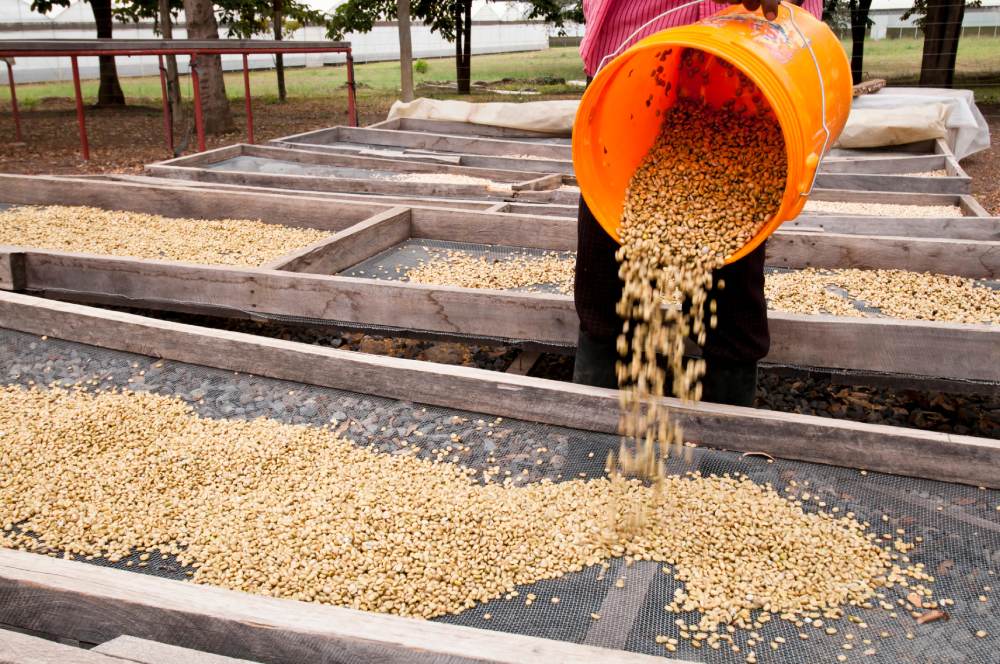
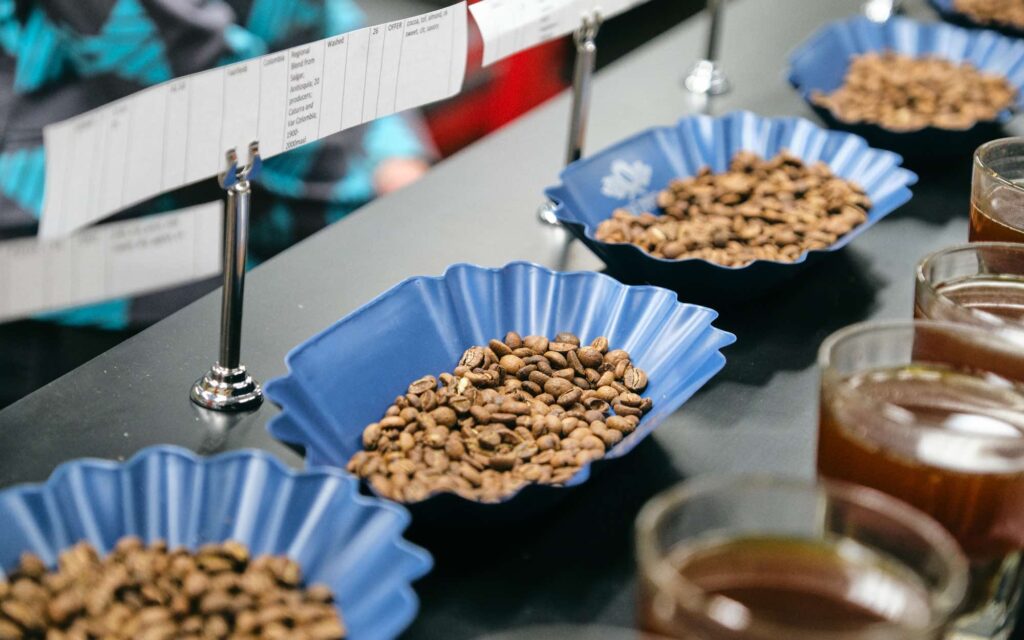
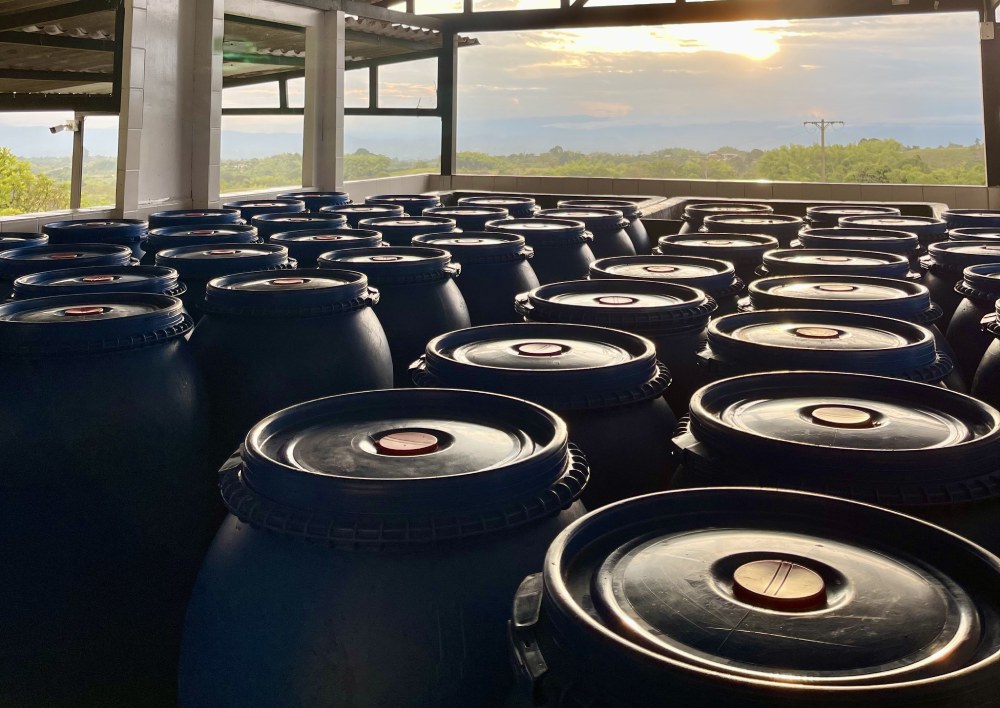
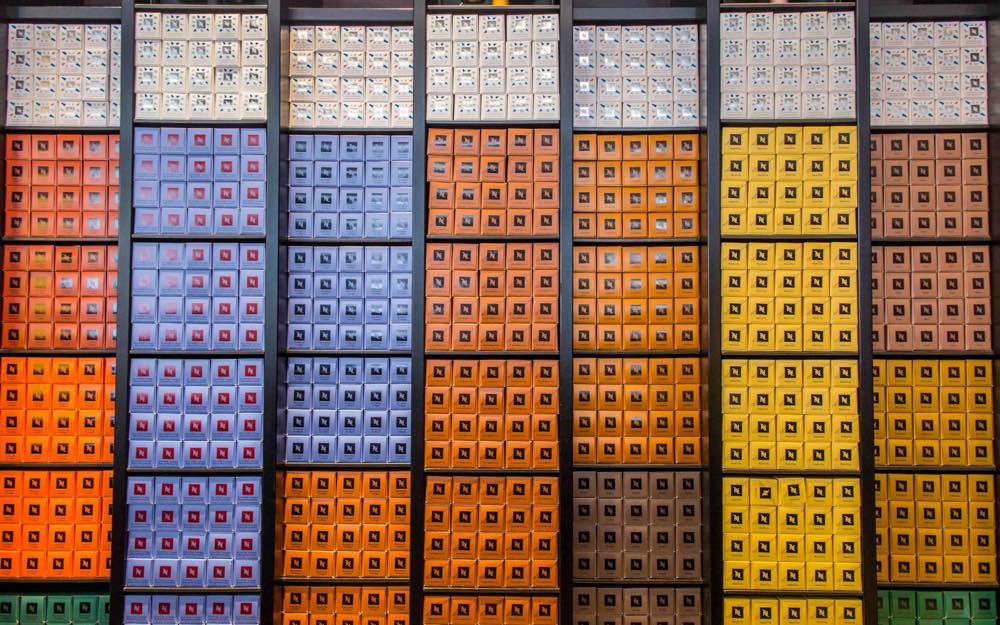
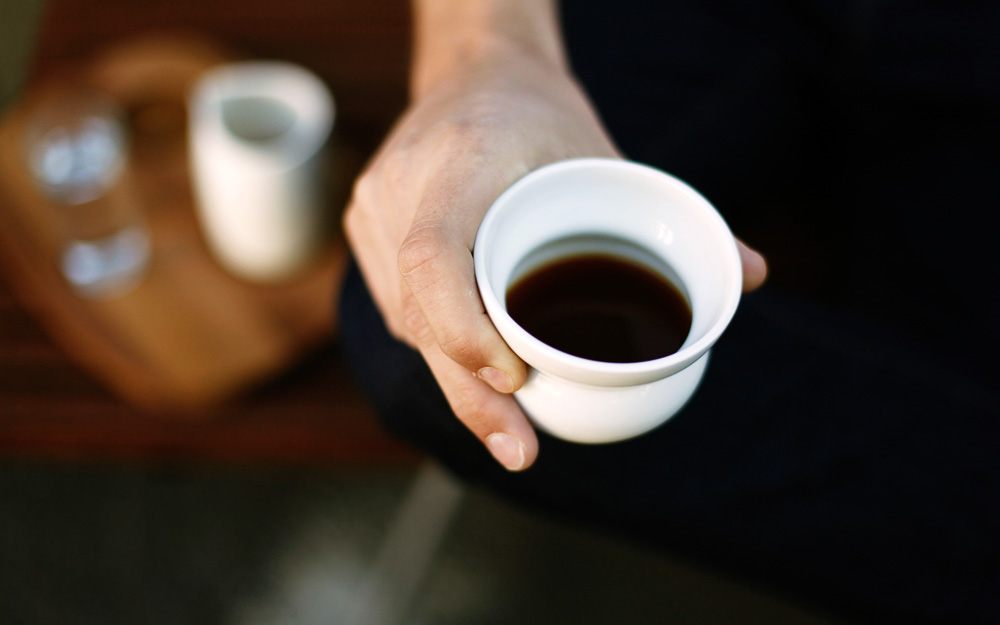
Responses